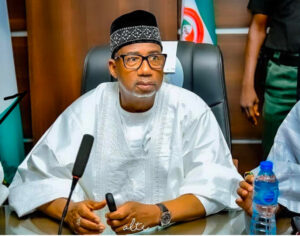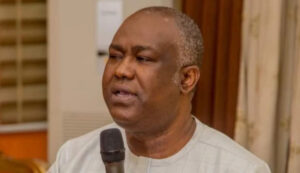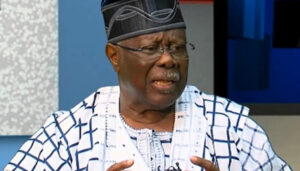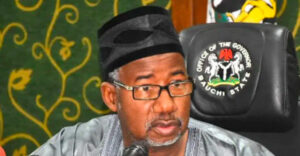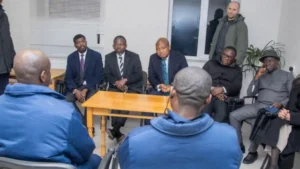The corruption trial of Nigeria’s former Aviation Minister, Hadi Sirika, has brought forward significant revelations about how government contracts are handled within ministries. During a recent hearing, a witness for the Economic and Financial Crimes Commission (EFCC), Azubuike Okorie, who previously served as the Director of Procurement in the Ministry of Aviation, explained that the responsibility for ensuring compliance with procurement laws rested solely on the Permanent Secretary of the ministry.
Hadi Sirika, his brother Ahmad Abubakar Sirika, and two companies—Enginos Nigeria Limited and Alburaq Limited—are facing multiple corruption-related charges. The charges against them include abuse of office, criminal breach of trust, and awarding contracts without following due process.
The EFCC has accused Sirika of using his position as the Minister of Aviation to grant contracts to his brother’s company, Enginos Nigeria Limited, amounting to about N19.4 billion. These contracts involved major projects, including the construction of a terminal building at Katsina Airport and the establishment of a Fire Truck Maintenance and Refurbishment Centre at the same airport.
One of the key aspects of the trial is whether the contracts awarded to Enginos Nigeria Limited followed proper procedures under Nigeria’s Procurement Act. During cross-examination, Azubuike Okorie, the second prosecution witness, made it clear that the Permanent Secretary of the Ministry of Aviation was the person responsible for ensuring procurement compliance—not the minister.
Okorie testified that Sirika did not sit on the ministry’s tender board, which is the body responsible for awarding contracts. Instead, the decisions were made based on memoranda submitted by the ministry’s contract secretariat, which was headed by the Director of Procurement. This testimony implies that the minister’s role was largely one of concurrence with decisions made by the board rather than being directly involved in contract approvals.
Another important aspect of the trial is the involvement of the Bureau of Public Procurement (BPP). According to Okorie, the BPP issued a “certificate of no objection” for the contracts in question, meaning that the contractor—Enginos Nigeria Limited—was deemed eligible to execute the projects.
The witness confirmed that the BPP was the sole body authorized to issue these certificates, ensuring that all contractors met the necessary qualifications before being awarded any contract. Although Okorie was not part of the department when the certificate was issued, his testimony underscores that the procurement process did pass through this important stage of legal compliance.
Despite the issuance of the certificate of no objection, the EFCC has accused Sirika of improperly using his influence to award contracts to his brother’s company. One of the specific contracts mentioned is for the construction of a terminal building at Katsina Airport, valued at N1.3 billion. Another notable project was the Fire Truck Maintenance and Refurbishment Centre, which had a contract value of N3.8 billion. The EFCC further alleged that Enginos Nigeria Limited illegally received over N2.3 billion, which the agency claims were proceeds of Sirika’s criminal conduct.
The anti-corruption body argued that these contracts were awarded without following due process, violating sections of the Corrupt Practices and Other Related Offences Act and the EFCC Establishment Act.
During the trial, the EFCC witness, Okorie, was cross-examined by the defense counsel, led by Senior Advocate of Nigeria (SAN) Kanu Agabi. Okorie reaffirmed that Sirika was not directly responsible for awarding the contracts and that the responsibility lay with the Permanent Secretary as the accounting officer of the ministry.
He also disclosed that when EFCC operatives searched his car, they found certain documents related to the case, which he had taken from Sirika’s office. Okorie admitted to copying these documents and forwarding them to both the Permanent Secretary and the Director of Procurement.
Okorie’s testimony included a humorous moment in the courtroom when he was asked about the relationship between Hadi Sirika and the second defendant, Ahmad Abubakar Sirika. The witness noted that “going by his name, I should think he is his brother,” which drew laughter from those present in the courtroom.
The trial of Hadi Sirika and his co-defendants is ongoing, with the defendants having pleaded not guilty to all charges. The case has been adjourned until November 12-14, when the cross-examination by the counsel for the other defendants will continue.
As the trial progresses, further details will be unveiled about the role of key individuals in the Ministry of Aviation and whether proper procedures were followed in the awarding of these large contracts. For now, the testimony of the EFCC witness places much of the responsibility on the Permanent Secretary, rather than on Sirika himself, though the allegations of influence and abuse of office remain central to the case.

